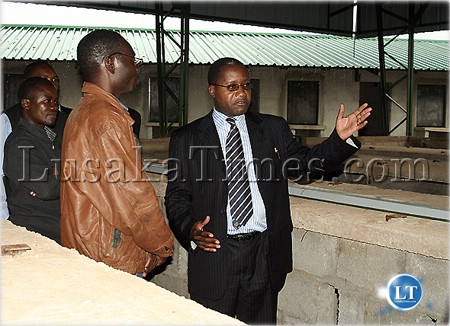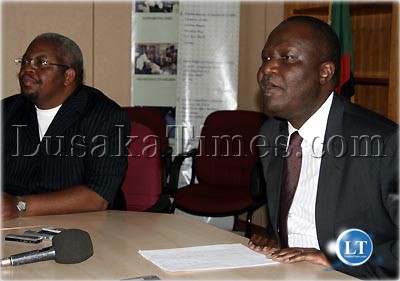Q-FM Radio stations Management says the station is saddened and regret’s the damages caused on President Banda during a recent Q-Fm radio progarmmme were they featured Kafulafuta Member of Parliament (MP) George Mpombo. On the said Programme, Mr. Mpombo alleged that President Banda stopped over in South Africa to watch the World Cup finals on his way to Turkey when the allegations were not true.
Q-FM Managing Director Moses Nyama said the station is saddened by such an event and noted that the whole issue was regrettable. He told ZANIS in an interview in Lusaka on Thursday that the Station regrets that Mr. Mpombo used the station to mudsling others instead of speaking the truth.
Mr. Nyama noted that Q-FM is a media institution that wants to highlight facts on issues that promote national development.
He has since urged all politicians in the country not to use the media to mudsling others but to bring about issues that are of national interest.
Mr. Nyama said politicians like Mr. Mpombo will not be tolerated at the station adding that the station will regard them as enemies who are not credible sources for the radio station.
He urged Mr. Mpombo to show remorse and apologize over the misleading statement he made recently which he said was bent on tarnishing the name of President Banda.
And Forum for Progressive Politics (FPP) has appealed to the media fraternity to be factual when reporting on issues of national interest.
FPP Secretary General Charles Kafumbo said the media should stop misleading the nation by always distorting facts particularly on the head of state’s visit and many other development programmes in the nation.
Mr Kafumbo said private media houses should revisit their ethical and professional standards because they have become leaders in peddling lies. He also urged former Government leaders like former Defence Minister George Mpombo to stop speculating and spreading lies saying doing so compromised their integrity.
Mr Kafumbo said in a statement made available to ZANIS in Lusaka Friday that the public expected former Government leaders to conduct themselves exemplary.
Meanwhile, Mr Kafumbo has appealed to the Electoral Commission of Zambia (ECZ) to remove the 90 days voter registration period tag if the commission was to be to capture its targeted more than two million new voters.
He said the 90 days period tag would only result in failure to capture the intended new voters. “The exercise is mobile, most constituencies like Chawama have only one at Katwishi grounds whereas most would be voters are flocking to polling districts expecting to find registration officers”, Mr Kafumbo observed.
The FPP Secretary General appealed to ECZ to revisit its contractual obligation with the Zambia News and Information Services (ZANIS) to carry out mobile publicity of the exercise
ZANIS










